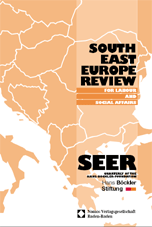How are trade unions perceived by their members? A survey report on trade unions in Malta
How are trade unions perceived by their members? A survey report on trade unions in Malta
Author(s): Edward L. Zammit, Saviour RizzoSubject(s): Cultural Essay, Political Essay, Societal Essay
Published by: Nomos Verlag
Keywords: trade unions in Malat;
Summary/Abstract: The main debate featuring in the literature on industrial relations throughout the last two decades has been the decline in trade union membership and influence. This has happened in most countries and is usually explained in terms of economic re-structuring – including large-scale privatisation policies and political changes that are more oriented towards the pragmatism of the market rather than ideology. Additionally there are the neo-liberal, anti-union policies followed by a number of governments. According to some observers, the very survival of trade unions in the future cannot be taken for granted. Malta is one of the rare exceptions where this membership crisis has not hit the trade union movement. The data emanating from this survey suggest that there are divergent interests between different groups of workers which the trade unions have to reconcile. The ideals of solidarity and social justice do not seem to feature highly in the perceptions of Maltese workers, given their instrumental orientation towards trade unions. These ideals are likely to be affirmed among older manual workers, in which sector trade unions have their origins. However, the two sets of values are not mutually exclusive. Given the patron-client pattern of social relations which prevails in Malta, the two types of values may actually reinforce each other.
Journal: SEER - South-East Europe Review for Labour and Social Affairs
- Issue Year: 2002
- Issue No: 03
- Page Range: 137-149
- Page Count: 13
- Language: English

